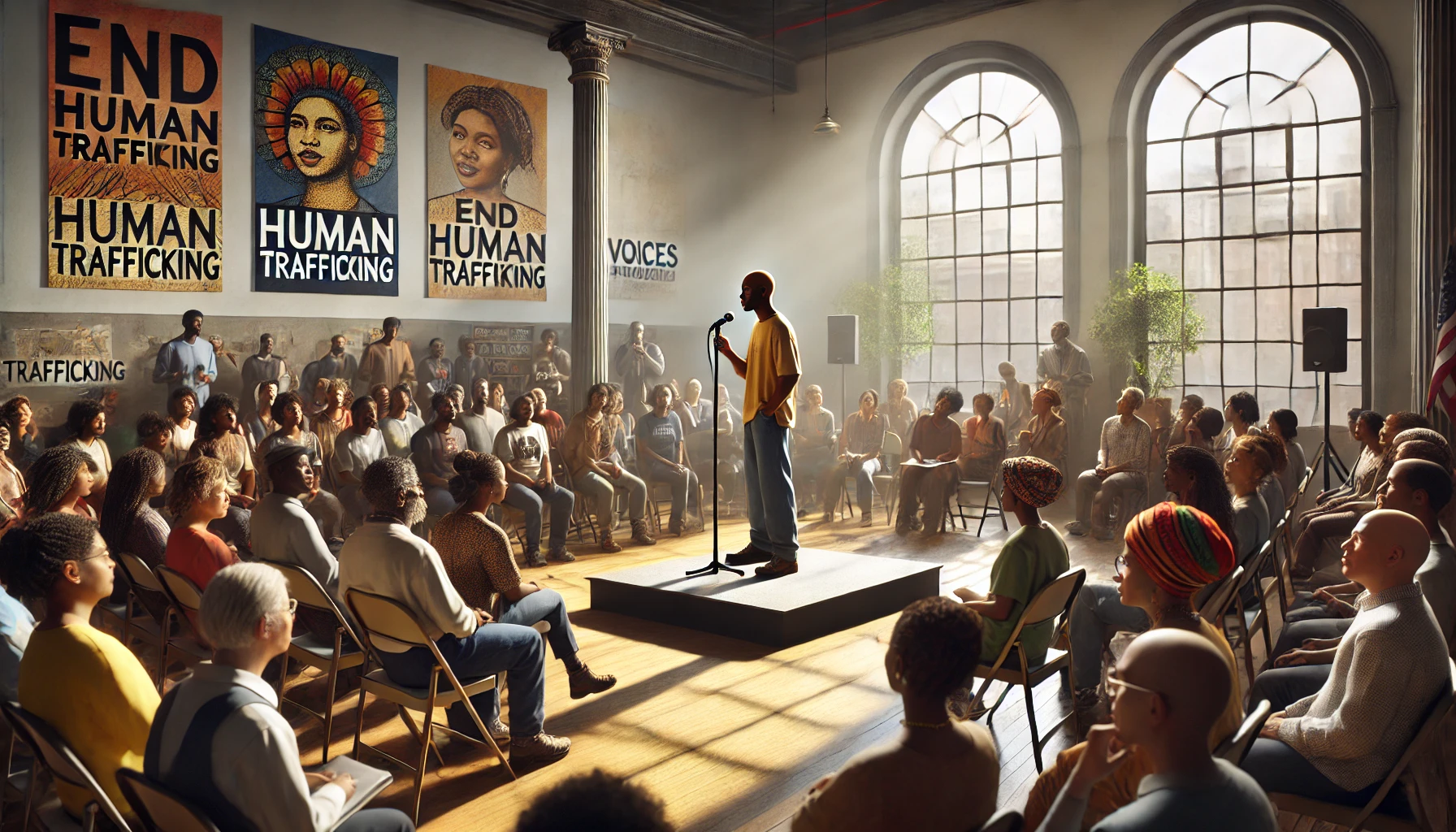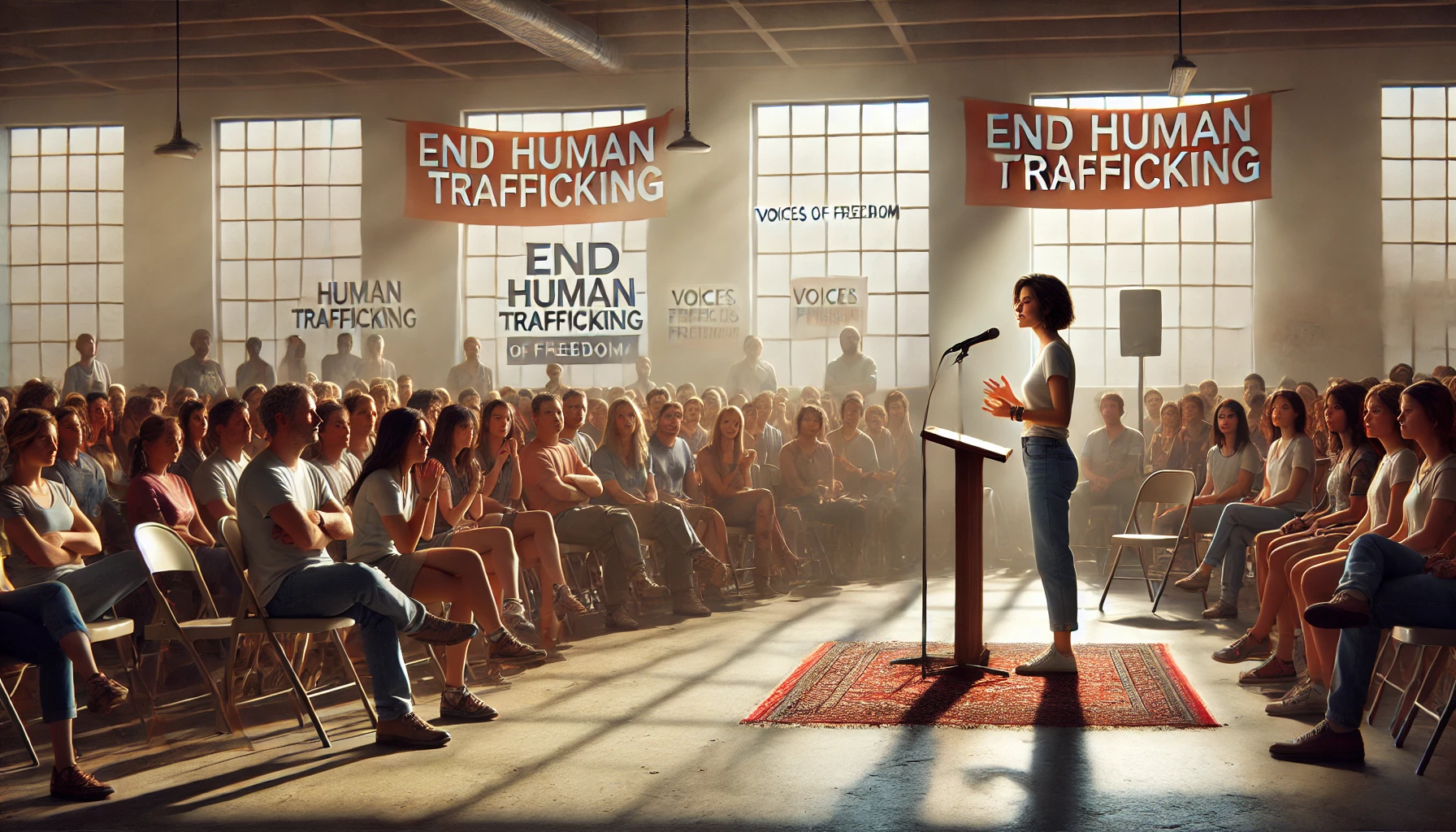NGOCSTIP – Human trafficking remains one of the most pressing global human rights crises, affecting millions of individuals annually. Despite its devastating impact, survivors are emerging as powerful voices, driving advocacy, education, and action to dismantle trafficking networks. These individuals bring a unique perspective shaped by lived experiences, making their contributions indispensable in the fight against human trafficking.
This article explores the pivotal role of survivors in the global anti-trafficking movement, highlighting their advocacy efforts, educational initiatives, and the transformative power of their stories.
Survivors: The Heart of Anti-Trafficking Advocacy
Survivors of human trafficking play a central role in raising awareness and driving change. Their stories expose the realities of trafficking, providing insights into the tactics used by traffickers and the systemic vulnerabilities that enable exploitation. This first-hand knowledge is invaluable in shaping policies and crafting prevention strategies that address the root causes of trafficking.
Survivor advocacy against trafficking often includes participating in public speaking events, consulting on policy development, and collaborating with organizations dedicated to eradicating trafficking. These activities amplify their voices, ensuring that survivors are not just seen as victims but as empowered leaders in the movement.
The Power of Personal Narratives
One of the most effective tools in survivor advocacy against trafficking is the personal narrative. Survivor stories humanize the issue, transforming abstract statistics into compelling accounts that resonate deeply with audiences.
These narratives serve multiple purposes:
- Raising Awareness: Personal stories highlight the complex realities of trafficking, debunking myths and stereotypes often associated with victims.
- Inspiring Action: Hearing a survivor’s journey from exploitation to empowerment motivates communities to take action, whether through volunteer work, donations, or policy advocacy.
- Guiding Policy: Survivor input ensures that laws and programs are grounded in real-world experiences, increasing their effectiveness.
Organizations like NGOCSTIP frequently partner with survivors to integrate their narratives into advocacy campaigns, amplifying their impact on a global scale.
Survivors as Educators
Education is a cornerstone of anti-trafficking efforts, and survivors are uniquely positioned to lead these initiatives. By sharing their experiences, they help educate diverse audiences, including:
- Law Enforcement: Training sessions led by survivors provide police and border officials with the tools to identify and assist trafficking victims effectively.
- Healthcare Providers: Survivors help healthcare professionals recognize the subtle signs of trafficking, enabling timely intervention.
- Community Groups: Public forums and workshops led by survivors raise awareness within vulnerable populations, equipping them with knowledge to protect themselves and others.
Educational initiatives led by survivors also foster empathy and understanding, breaking down societal stigmas that often hinder victims’ reintegration.

READ MORE : Strategy 2030: Creating a Prosperous and Sustainable Asia-Pacific
Survivor-Led Advocacy Organizations
Survivors are not only participating in existing advocacy efforts but also leading their own initiatives. Many have founded organizations dedicated to combating trafficking, providing direct support to victims, and lobbying for systemic change.
These survivor-led groups focus on areas such as:
- Rehabilitation: Offering counseling, job training, and housing support to help survivors rebuild their lives.
- Legislative Advocacy: Pushing for stronger laws and enforcement mechanisms to deter traffickers and protect victims.
- Prevention Programs: Educating at-risk communities to reduce their vulnerability to exploitation.
By taking the lead in these areas, survivors demonstrate the resilience and determination necessary to effect lasting change.
Challenges Faced by Survivor Advocates
While survivors play a vital role in the anti-trafficking movement, they often face significant challenges. These include:
- Emotional Burden: Recounting traumatic experiences can be emotionally taxing, requiring access to mental health support.
- Stigma and Discrimination: Survivors may encounter societal biases that undermine their advocacy efforts.
- Resource Constraints: Many survivor-led initiatives operate with limited funding, restricting their reach and impact.
Despite these obstacles, survivor advocates continue to persevere, driven by a commitment to prevent others from experiencing the horrors they endured.
The Global Impact of Survivor Advocacy
Survivor advocacy against trafficking has had a transformative impact on global efforts to combat this crime. By sharing their stories and expertise, survivors have:
- Influenced Policy: Survivor input has led to the creation of victim-centered laws and support programs.
- Increased Awareness: Campaigns featuring survivor narratives have reached millions, fostering greater public understanding of trafficking.
- Mobilized Communities: Survivor-led initiatives have inspired grassroots movements, creating a network of advocates united in the fight against trafficking.
Building a Survivor-Centered Movement
To maximize the impact of survivor advocacy against trafficking, it is crucial to create a survivor-centered movement. This involves:
- Providing Support: Ensuring survivors have access to mental health services, financial assistance, and educational opportunities.
- Elevating Voices: Including survivors in decision-making processes at every level of anti-trafficking efforts.
- Fostering Collaboration: Building partnerships between survivors, NGOs, governments, and businesses to amplify their impact.
By prioritizing survivors’ perspectives and needs, the anti-trafficking movement can become more effective, inclusive, and sustainable.
Survivors of human trafficking are not just participants in the fight against this global crime—they are its leaders. Through advocacy, education, and action, they are transforming personal pain into collective progress. Their voices remind us of the resilience of the human spirit and the power of lived experience to drive meaningful change.
As we continue the fight against trafficking, it is imperative to support and amplify the voices of survivors, ensuring that their courage and wisdom guide us toward a world free from exploitation.



